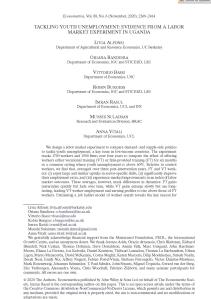Comment
From May this year, all large employers have had to pay the apprenticeship levy, which equates to 0.5% of payroll bills in excess of £3m. This is estimated to raise £2.8bn a year by 2019-20. In recompense, expenditure on the costs of off-the-job training for apprentices is now effectively free (up to certain limits set by government), which applies to levy- and non-levy-paying employers in a broadly similar way. These changes have led to an increase in the expected government subsidy for apprenticeships in England from £1.8bn in 2016-17 to £2.5bn in 2019-20.








































